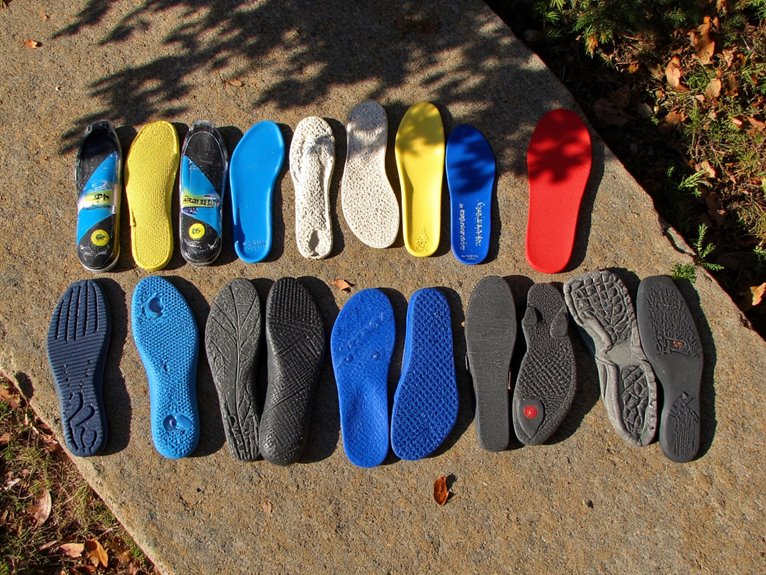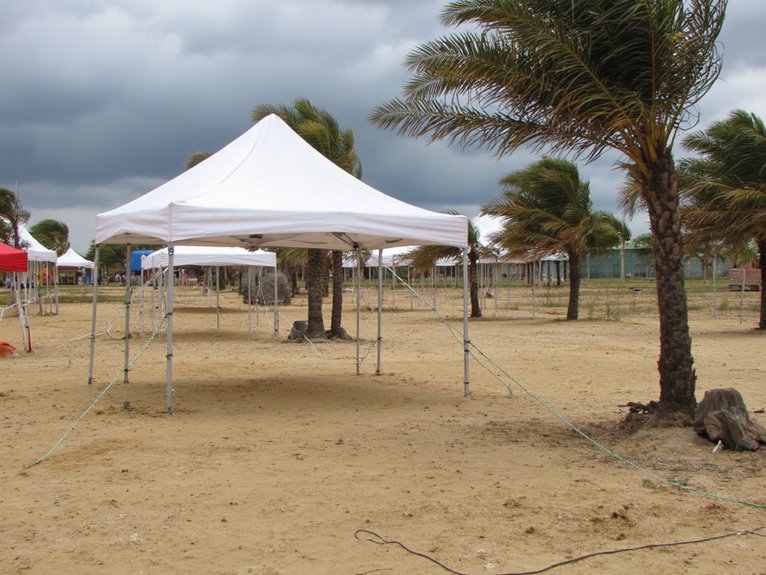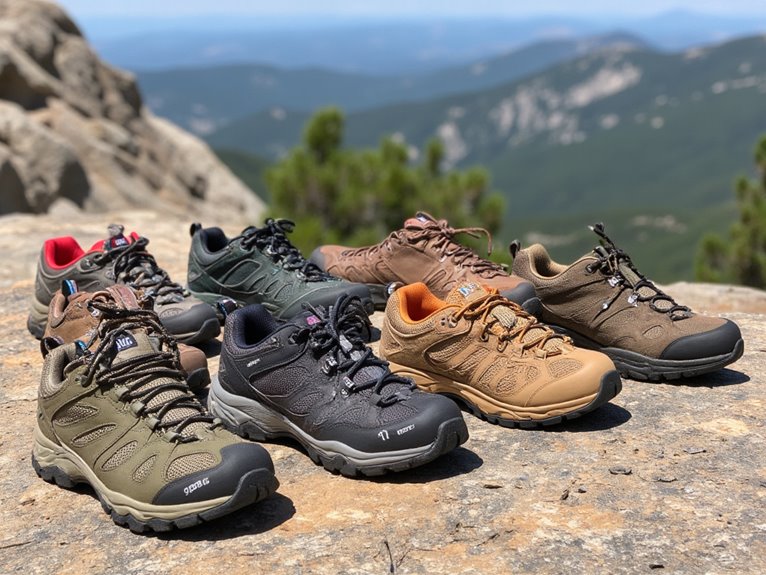What Food Is Good for Overnight Hiking?
When venturing on an overnight hike, fueling your body with the right foods is essential. Trail mix, energy bars, and dried fruits provide quick energy boosts, while jerky, nuts, and seeds offer concentrated sources of protein, carbohydrates, and healthy fats. For sustained performance, meals rich in complex carbohydrates, lean protein, and healthy fats are vital. Don't forget to replenish electrolytes with coconut water or sports drinks and hydrate wisely. To optimize your hike, learn how to balance your backpacking menu with nutrient-dense foods for sustained energy and rapid recovery, and discover the camping cuisine essentials to enhance your wilderness experience.
We are supported by our audience. When you purchase through links on our site, we may earn an affiliate commission, at no extra cost for you. Learn more. Last update on 22nd January 2026 / Images from Amazon Product Advertising API.
High-Energy Snacks for the Trail
Trail mix, energy bars, and dried fruits are staples in many a hiker's backpack, providing a quick energy boost to fuel the ascent up rugged mountain trails. These high-energy snacks are designed to combat fatigue and satisfy hunger pangs, allowing hikers to maintain their pace and enjoy the scenic views. When choosing snacks, opt for lightweight, compact, and nutrient-dense options that are easy to consume on-the-go. Jerky, nuts, and seeds are excellent choices, providing a concentrated source of protein, carbohydrates, and healthy fats. By packing these snacks, hikers can guarantee they have the energy reserves needed to tackle challenging terrain and enjoy a successful overnight hiking adventure.
Meals for Sustained Performance
For sustained performance on the trail, hikers require meals that provide a balance of complex carbohydrates, lean protein, and healthy fats to maintain energy levels and support overall physical function. Meals rich in complex carbohydrates, such as whole grains, brown rice, and quinoa, provide sustained energy release. Lean protein sources like chicken, fish, and legumes support muscle function and repair. Healthy fats from nuts, seeds, and avocados provide additional energy and support overall health. Meal options like bean burritos, whole-grain pasta with lean beef, and quinoa salads with grilled chicken and avocado provide the necessary balance for sustained performance. By incorporating these meal options into their backpacking menu, hikers can guarantee they have the energy and nutrients needed to tackle the trail with confidence.
Hydration and Electrolytes Matter
Proper hydration and electrolyte balance are equally essential components of a hiker's backpacking menu, as even mild dehydration can impair physical performance and increase the risk of more severe health issues on the trail. When venturing into the wilderness, it's crucial to prioritize hydration and electrolyte replenishment. Here are some key considerations:
- Pack electrolyte-rich drinks: Bring electrolyte-rich beverages like coconut water or sports drinks to replenish lost salts.
- Monitor urine output: If your urine is dark yellow or you're not urinating frequently, it may be a sign of dehydration.
- Eat hydrating foods: Incorporate foods with high water content, such as watermelon and cucumbers, into your backpacking menu.
- Ration water wisely: Make every liter count by rationing your water supply carefully and avoiding unnecessary consumption.
Food for Quick Recovery
During periods of intense physical activity, such as overnight hiking, consuming nutrient-dense foods that support rapid recovery is essential to maintaining energy levels and reducing muscle soreness. Foods rich in protein, complex carbohydrates, and healthy fats help to repair and rebuild muscles, replenish energy stores, and support overall recovery. Incorporating foods high in antioxidants, such as berries and nuts, can also help reduce muscle inflammation and oxidative stress. Additionally, foods with anti-inflammatory properties, like fatty fish and turmeric, can aid in reducing muscle soreness and joint pain. By prioritizing these nutrient-dense foods, hikers can optimize their recovery and get back on the trail feeling refreshed and revitalized.
Camping Cuisine Essentials
Packing a well-stocked camping pantry with essential ingredients and cooking gear enables hikers to prepare satisfying, nourishing meals that fuel their bodies for the trail ahead. A well-planned camping cuisine ensures that hikers stay energized and focused throughout their journey. To get started, consider packing these camping cuisine essentials:
- Portable stove and fuel: A reliable stove and fuel source for cooking meals in the wilderness.
- Lightweight cookware: Compact, durable pots, and pans for preparing meals.
- Spices and seasonings: A selection of herbs and spices to add flavor to meals.
- Water purification tablets: A means to ensure access to safe drinking water.



